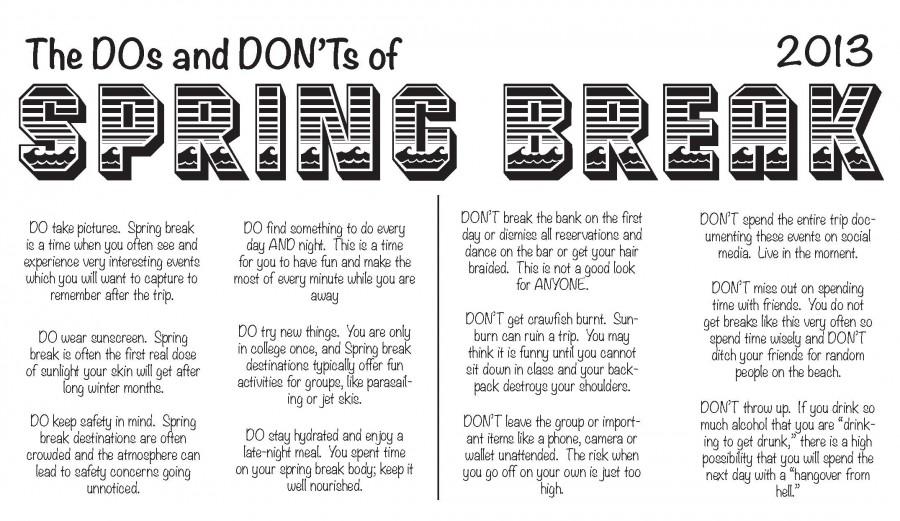Although spring break is a time for fun, students should be careful that travel agencies do not scam them out of their money.
When planning a spring break trip, Spring Break Direct suggests that people research the following things: reliability, hidden fees and what the term “all-inclusive” means.
When determining whether or not a company is reliable, research them by using the Better Business Bureau’s website. In order to look up a company using the BBB’s website, type in the name of the company and the BBB will pull up an online reliability report.
Nicholls Police Chief Craig Jaccuzzo said that you should always check the reliability of the travel agency choosen and make sure that they are a legitimate company. Jaccuzzo says to ask for the company’s proof of business license before doing business with them. Also, looking up peer reviews on the company can help with making a decision.
“If something sounds too good to be true, it probably is,” Jaccuzzo said.
Hidden fees are also a major concern for spring breakers who are on a budget. Many companies charge travelers a fee when paying for a trip with their credit card. However, this fee is illegal. Spring Break Direct stated that most travelers do not notice this hidden fee until they try to pay for the entire trip.
Jaccuzzo said it is best to always read the fine print. He says companies always have guarantees within contracts that could cause you to pay more money. For example, if a company promises a customer something within a travel package and the customer ends up paying additional charges later, it could be because they did not do something in the contract that may have been too small to read. These fees can multiply by simply not answering a survey that the company requires for a cheaper rate.
When paying for a spring break trip, Jaccuzzo suggests that students stay away from regular banking. Buying a pre-paid banking card is the best idea because companies that charge hidden fees cannot add them to your account.
When using an online travel agency, make sure the site has secure payment transaction software, such as PayPal, before doing business with the company. If they do not have a secure method of payment, Jaccuzzo says it would not be a wise decision to conduct business with them.
Spring Break Direct also points out that the term “all-inclusive” seems to confuse spring break travelers to think that everything included in their traveling package will be paid for. This includes getting into parties for free, free drinks at nightclubs and “dine-around meal plans” at venues outside of the hotel. However, the term “all-inclusive” simply means that a hotel stay will earn you three meals per day and all drinks paid for within the hotel during certain times of the day.
If someone believes they have been scammed after signing a contract and paying money for a trip, there is a possibility the traveler cannot sue the travel agency for charging them more than the agreed upon price.
Spring Break Direct stated that most travel agencies have customers waive the right to sue through arbitration, which allows the customer’s problems with the company to be resolved outside of the courtroom. This method is not used in the best interest of the customer, but for the company.
Jaccuzzo said overall anyone going on Spring Break should be aware of where you are going and how safe the destination is.
“Do a little research on the location you plan to visit,” Jaccuzzo said. “Always know where you want to be. Make sure the town does not have high crime rates.”
How to avoid being scammed on spring break trip 2013
Tiffany Williams
•
March 28, 2013
0
More to Discover








